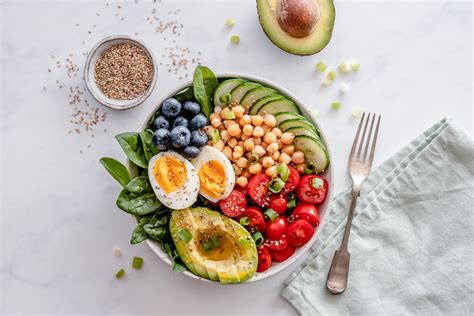Natural T-boost strategies for sustained male energy & performance?

Unlocking Male Vitality: The Power of Natural Testosterone Boosts
Testosterone, often hailed as the king of male hormones, plays a pivotal role far beyond just muscle mass and sex drive. It’s a critical component for sustained energy, cognitive function, mood regulation, bone density, and overall metabolic health. As men age, a gradual decline in testosterone levels is natural, but modern lifestyles can accelerate this process, leading to symptoms like fatigue, reduced libido, decreased muscle mass, and impaired focus. The good news? Many potent strategies exist to naturally optimize your testosterone levels, fostering improved energy and performance.
Instead of seeking quick fixes, embracing a holistic approach that integrates diet, exercise, and lifestyle changes can yield profound and lasting benefits for your male vitality.

Nutritional Powerhouses for Optimal Testosterone Production
What you eat directly impacts your hormonal balance. Certain nutrients are essential precursors or co-factors in testosterone synthesis:
- Vitamin D: Often called the ‘sunshine vitamin,’ Vitamin D is a pro-hormone crucial for numerous bodily functions, including testosterone production. Studies show a correlation between healthy Vitamin D levels and higher testosterone. Aim for regular sun exposure and consider supplementation, especially in darker months or if you have limited sun access.
- Zinc: This vital mineral is fundamental for hormonal health. Zinc deficiency can lead to reduced testosterone. Foods rich in zinc include oysters, red meat, poultry, beans, nuts, and whole grains.
- Healthy Fats: Don’t shy away from fats; choose the right ones! Monounsaturated and saturated fats (in moderation) are critical for hormone production. Sources include avocados, olive oil, nuts, fatty fish, and coconut oil. Avoid trans fats entirely.
- Protein: Adequate protein intake supports muscle maintenance and growth, indirectly supporting a healthy hormonal environment. Lean meats, fish, eggs, and legumes are excellent choices.
The Impact of Exercise: Move Your Way to Better T-Levels
Regular physical activity is a cornerstone of natural testosterone enhancement. Not all exercise is created equal when it comes to boosting T-levels:
- Strength Training: Lifting weights, especially compound movements like squats, deadlifts, bench presses, and rows, stimulates a significant testosterone response. Focus on progressively overloading your muscles.
- High-Intensity Interval Training (HIIT): Short bursts of intense exercise followed by brief recovery periods can also effectively boost testosterone. This method is time-efficient and highly effective.
Avoid excessive endurance training, as chronic long-duration cardio without adequate recovery can sometimes suppress testosterone levels.

Prioritize Sleep: Your Body’s Natural Hormone Balancer
In our always-on world, sleep is often the first thing to be sacrificed. However, quality sleep is non-negotiable for hormone production. Most of your daily testosterone is produced during sleep. Chronic sleep deprivation, even just a few hours nightly, can significantly reduce testosterone levels. Aim for 7-9 hours of high-quality, uninterrupted sleep per night. Establish a consistent sleep schedule, create a dark and cool bedroom environment, and avoid screens before bed to optimize your body’s natural restorative processes.

Master Stress: Cortisol’s Rivalry with Testosterone
Chronic stress elevates cortisol, another hormone that works antagonistically to testosterone. When cortisol levels are high for extended periods, it can suppress testosterone production. Incorporating stress-reducing practices into your daily routine is crucial:
- Mindfulness and Meditation: Regular practice can significantly lower stress and improve emotional regulation.
- Deep Breathing Exercises: Simple yet effective techniques to calm the nervous system.
- Nature Exposure: Spending time outdoors has proven benefits for stress reduction.
- Hobbies and Social Connection: Engage in activities you enjoy and maintain strong social bonds.

Lifestyle Choices that Make a Difference
- Limit Alcohol Intake: Excessive alcohol consumption can directly impair testosterone production and increase its conversion to estrogen. Moderate consumption is generally fine, but heavy drinking should be avoided.
- Avoid Endocrine Disruptors: Certain chemicals found in plastics (BPA, phthalates), pesticides, and personal care products can mimic or interfere with hormones. Opt for natural alternatives and store food in glass containers.
- Maintain a Healthy Weight: Obesity, especially abdominal fat, is strongly linked to lower testosterone. Fat cells contain an enzyme called aromatase, which converts testosterone into estrogen. Losing excess weight can significantly improve T-levels.

Conclusion: A Holistic Path to Sustained Energy and Performance
Boosting testosterone naturally is not about a single magic bullet, but rather a synergistic approach to overall health. By consistently prioritizing nutrient-rich foods, engaging in effective exercise, ensuring adequate sleep, managing stress, and making conscious lifestyle choices, you empower your body to optimize its hormonal environment. This comprehensive strategy not only supports healthy testosterone levels but also translates into sustained energy, enhanced physical and mental performance, improved mood, and a greater sense of vitality as you navigate through life.









